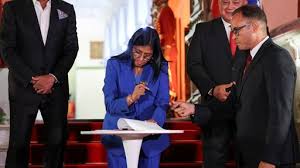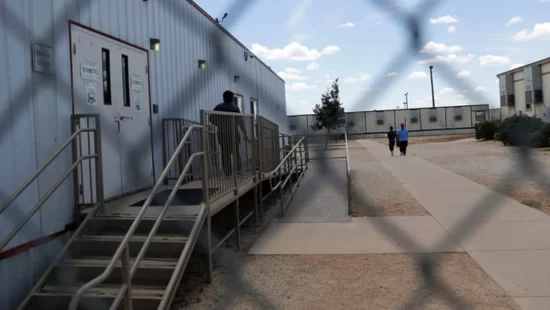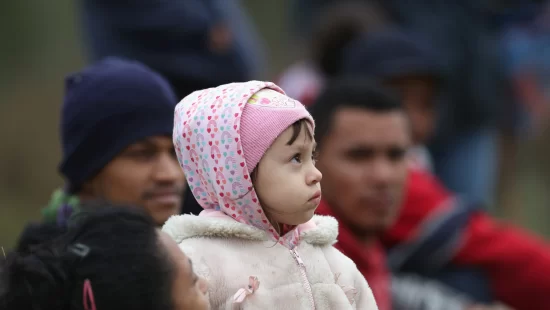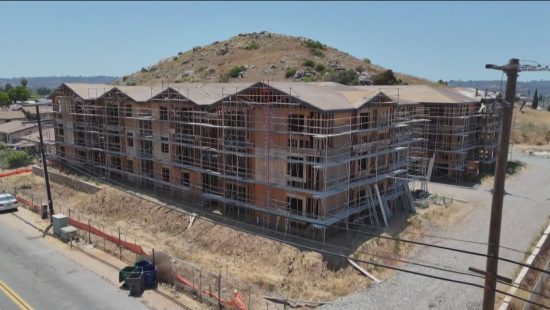“We’re in the first stage of the campaign, and those residents who didn’t know me before are getting to know me. They open their doors, and I listen to their concerns.”
Sylvia Robledo knows that the next election to choose the Los Angeles District 1 councilmember is coming, but she has enough confidence in her history and knowledge of the district she hopes to lead.
“I’ve been a long-time resident, I’ve worked for previous councilmembers as a deputy, so I know how to identify problems and how to find solutions to resolve them. One thing I can say is, right now the district is a mess. We have a councilmember who is more concerned with political policy than with the residents,” says Robledo.
Robledo has had a long career in public service. She has held roles in both city and state government, including serving as an aide in Council Districts 1, 9, and 13. Her career also includes service at California Hospital Medical Center, where she supported community-based health initiatives, deepening her understanding of the intersection between public health and city policy. Sylvia later served as Western Regional Director for EMILY’s List.
“I love Los Angeles, and it hurts me to see what it has become. I worked for former councilmember Gil Cedillo before the election in which he faced off against the current councilmember, Eunisses Hernández. I can assure you the district was safer and the neighborhoods were cleaner back then. MacArthur Park was a safe and clean place—look at what it’s become. It’s not just me saying this; it’s what residents and small business owners I’ve met with are saying,” she adds.
Robledo has decided to base her initial campaign on walking through the district, meeting with families, businesses, and anyone who opens their door.
“I can tell you one thing: people are not happy—they want change,” she says.
Robledo comes from an immigrant family and knew from a young age what it was like to work and support her parents, who were originally from Mexico. But she always had her sights set on going to college.
“I was well-behaved and liked to study. My parents were very strict, so there wasn’t much room to do other things, but I always understood that an education and good financial management would help me succeed. That’s how I got to UCLA, where I studied Chicano Studies and was involved in several organizations,” she adds.
A series of misfortunes confronted her with different experiences that brought pain but also lessons.
“Some of my family members passed away, and I had a long career in the public sector and as a counselor, but around 2019, I had to pause. There came a time when I decided it was time to grieve and to heal. After that, I emerged stronger and more focused. I decided that from then on, if I did something, it had to have purpose—every choice matters—regardless of what people thought. Why did I decide to run in this election? Because it matters. I couldn’t just stand by after seeing, hearing, and living what’s happening in the district. I’m a landowner and I know other landowners, and they’re concerned about street maintenance, the homelessness issue, public lighting, crime. Something had to be done. I have nothing against Eunisses—she’s a very active person—but I don’t believe her focus is on the residents; it’s on political policy,” she adds.
Why did I decide to run in this election? Because it matters. I couldn’t just stand by after seeing, hearing, and living what’s happening in the district.
You can hear the passion in her voice when she talks about community issues. For her, the most important position in a councilmember’s office is that of the deputies—because she was one. If the councilmember doesn’t choose their aides well, their work won’t be effective.
“They’re the ones people call. I know because they used to call me all the time—citizens with problems, worried about the lack of services. But you can’t be a councilmember with just an answering machine telling residents to dial 311 if they have a problem,” she says emphatically.
She made the final decision to enter the race after some residents approached her, since they knew her from her previous work and are aware of her effectiveness and commitment to the community.
For her, there’s a lot of confusion about the district’s real problems, and no comprehensive vision.
“Affordable housing is mentioned a lot as a partial solution to homelessness. However, they don’t talk about other key issues—health, mental health. Problems aren’t solved in isolation but through a comprehensive approach. That’s why this problem has grown in District 1,” she says.
“One thing I can conclude is that the residents are very worried—especially the young. They don’t see a way out of everything that’s happening. People have less hope; that’s why we need a leader who stands with them,” she concludes.
“Before, people criticized Cedillo for not being visible in the district. Well, something similar is happening now,” she adds. “Eunisses doesn’t understand the pulse of the people. I know she has a very positive agenda for tenants’ rights, but… what about the district’s landowners? Many voters are property owners, and they want answers—and she hasn’t given them. In the last election, one thing was clear: a vote for Eunisses was a vote against Cedillo, not in favor of her,” she says forcefully.
For Robledo, there is currently poor leadership, a lack of accountability for how money is spent, and misplaced priorities.
“There are a lot of interests. Other candidates are being supported by Latino politicians who have been important figures in Los Angeles politics, but there are also interests behind them,” she said.
Robledo’s goal is to make it to the runoff in this election.
“That’s my first goal. We know there will be a runoff. I’m sure I’ll be in it. We’re in the first stage of the campaign, and those residents who didn’t know me before are getting to know me. They open their doors, and I listen to their concerns. Some people who do know me ask, ‘Why are you getting into this? It’s so much work!’ And here I’ll stay. I think this is an obvious example that I care about this district, its residents, and the idea that we all have the right to live the best way possible,” she said.
“I believe in the spirit and the struggle of the community. I see how my parents fought, and as immigrants, it’s the same struggle the residents of the district face.”One thing I can conclude is that the residents are very worried—especially the young. They don’t see a way out of everything that’s happening. People have less hope; that’s why we need a leader who stands with them,” she concludes.








